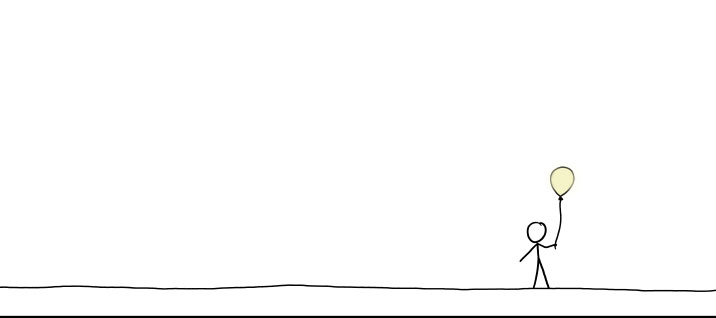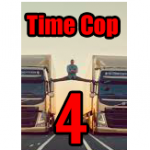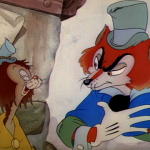We can tell stories however we want

I once did a training on the mobile web and I handed out all kinds of funny shaped “scrap paper” and asked the participants to design an ad. Of course, I didn’t tell them what the real test was. I made lots of oddly shaped paper scraps because the real test was how does the shape of the paper influence the design of the product. Some people simply designed a square ad because they had always seen square ads. They weren’t influenced by the medium at all. Others followed the shape and size of their paper to design their ad to fit in.
“…dimensions are not the canvas”
Every time we tell a story it’s influenced by the medium. Writing a sci-fi? It will look very different if the medium is Twitter instead of a movie. We have more options and fewer constraints for telling stories than at any other time in history. (On a side note, you can always do X more than any other time in history. Look! I’m older than at any other time in history!)
TV has traditionally been a very shackled medium. Shows had to be completely episodic, or bottled so anyone could tune at anytime and pick up and enjoy the show. Now we don’t have that, we can make serial shows; shows that build on each other and must be watched in order.
The point of my training exercise was to point out how the web was its own canvas with many sizes and shapes. With the web, the dimensions are not the canvas.
Web design, TV, fiction, really all story telling has all kinds of new canvases. We haven’t even scratched the surface of what’s possible.
Extra reading
- Because the Internet by Childish Gambino — I have a theory this will be regarded as the most important album of the 10’s because it encapsulates and explores the entire idea of the shifted canvas. Music was just one part of this huge story.
-
TV’s narratives is being changed by technology — As always the The Idea Channel offers a really concise look at the topic.
We can tell stories however we want
 The First God
The First God The Night God Spoke – A Super Short Story
The Night God Spoke – A Super Short Story The Space Time Continuum of Time Travel Logic
The Space Time Continuum of Time Travel Logic What are we really supposed to learn from fairy tales?
What are we really supposed to learn from fairy tales? How my wife going to work made our home more harmonious and brought us closer together.
How my wife going to work made our home more harmonious and brought us closer together.